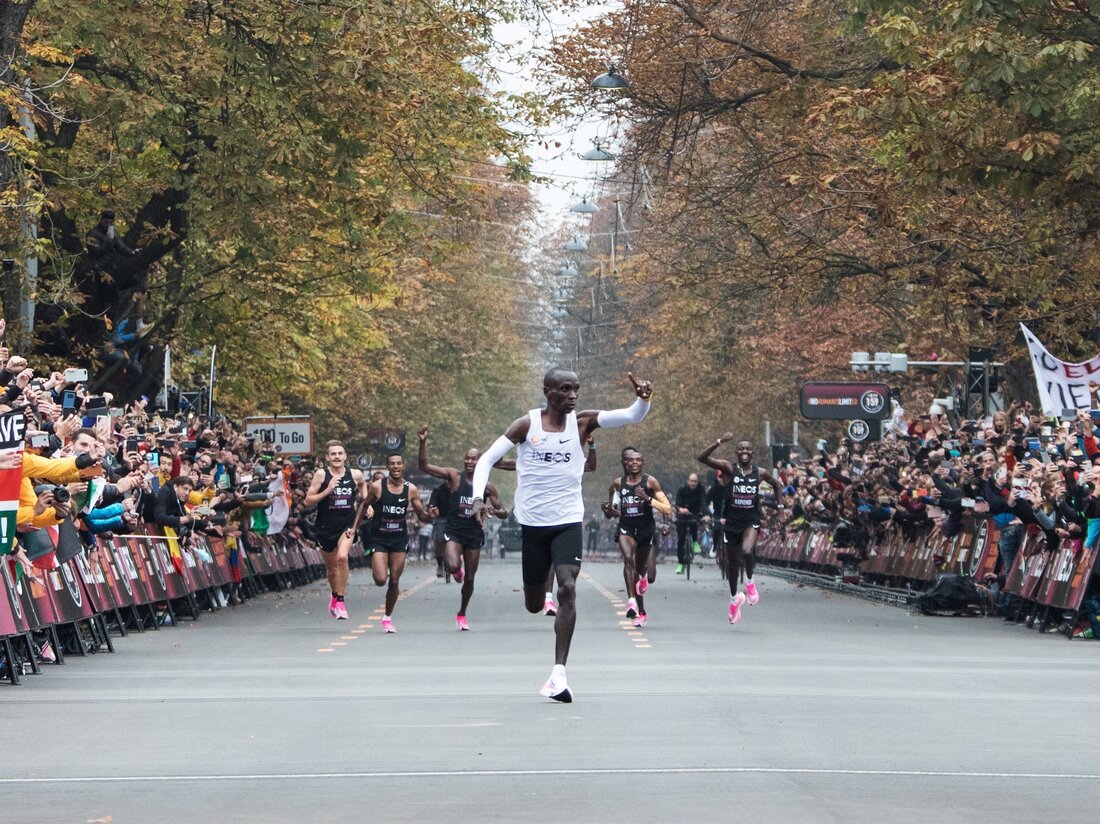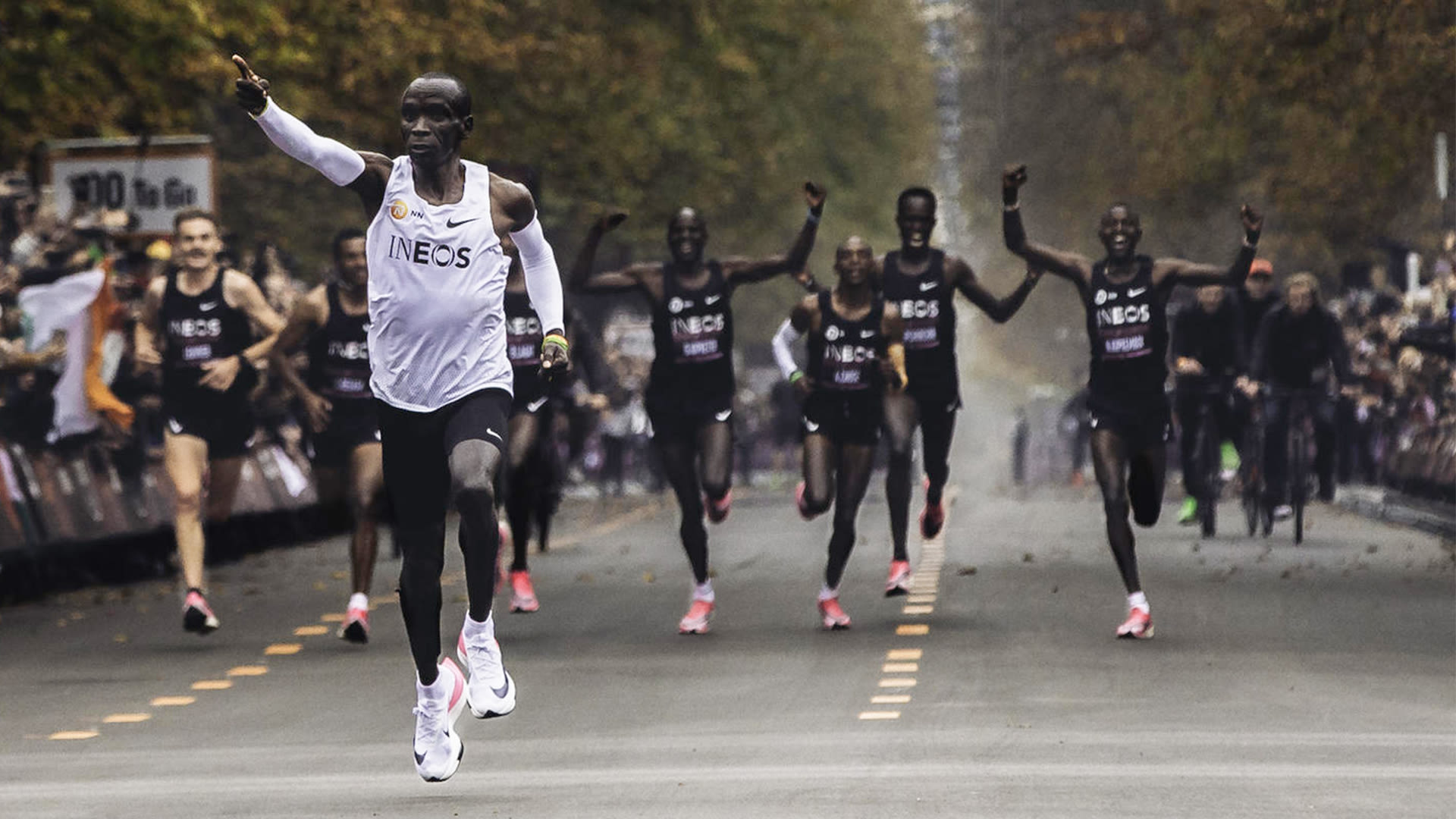The marathon, a race of 42.195 kilometers (26.2 miles), is much more than a distance; it represents an enduring test of human endurance, speed, and willpower. Though this distance might seem arbitrary compared to rounder figures like 5km or 10km, its importance in global athletics is immeasurable. The marathon has captured the imagination of athletes and fans alike for over a century, inspiring athletes to push their physical limits and creating heroes from the most unlikely individuals. The evolution of the marathon has also introduced a race against the clock, adding a new layer of intrigue to the event.
At the heart of the marathon’s history is a legend from ancient Greece, which recounts the story of Philippides, a foot courier who famously ran from Marathon to Athens after a victorious battle against the Persians. This tale, documented by the historian Herodotus, has become the mythological foundation of the marathon event. In modern history, the idea to recreate this legendary run during the Olympic Games came from Frenchman Michel Bréal, who suggested it to Pierre de Coubertin, the founder of the modern Olympics. This proposal led to the creation of the marathon as an Olympic event in the 1896 Athens Games.
The first Olympic marathon, held in Athens, was won by Greece’s Spyridon Louis, who completed the roughly 40km race in 2 hours, 58 minutes, and 50 seconds. This race set the stage for the marathon’s future, though the distance would vary in the ensuing years. The 1904 St. Louis Olympic marathon was shorter at 40km, while the 1920 Antwerp marathon, at 42.750km, was the longest in Olympic history. The distance was officially standardized at 42.195km in 1921 by the International Amateur Athletic Federation (now World Athletics), setting the foundation for modern marathon races.

In terms of records, the evolution of the men’s marathon world record has been closely tied to the race against time. Official world records for the marathon were not recognized until 2003, when Kenya’s Paul Tergat set a record of 2:04:55 at the Berlin Marathon. Tergat’s record was soon broken by Haile Gebrselassie of Ethiopia, whose time of 2:04:26 in 2007 marked the beginning of a new era. Gebrselassie then became the first person to break the 2:04 barrier with a time of 2:03:59 in 2008. Several record-breaking performances followed, including Dennis Kimetto’s 2:02:57 in 2014, and Eliud Kipchoge’s remarkable 2:01:39 in 2018, which came close to the two-hour mark.
The quest for the elusive two-hour marathon has been a major focus of recent marathons. Kipchoge’s 2018 record was followed by an even faster time of 2:01:09 at the 2022 Berlin Marathon, and ultimately, the world record was shattered in 2023 by Kelvin Kiptum, who finished the Chicago Marathon in 2:00:35. This groundbreaking performance further intensified the global pursuit of a sub-two-hour marathon, which remains a highly anticipated feat that many believe is within reach under optimal conditions.
Similarly, the women’s marathon has seen dramatic improvements, with records that have been broken by the world’s best athletes. The first Olympic women’s marathon was held in Los Angeles in 1984, with Joan Benoit of the United States winning the gold. However, it was Great Britain’s Paula Radcliffe, who set a stunning new world record of 2:15:25 in 2003, that redefined the standard for female marathoners. This record stood for over 16 years, until Kenya’s Brigid Kosgei broke it with a time of 2:14:04 in 2019. However, in 2023, Ethiopia’s Tigst Assefa stunned the world by running an extraordinary 2:11:53 at the Berlin Marathon, further pushing the limits of the women’s marathon.
The women’s marathon race has become equally competitive as the men’s, with exciting challenges for the world record. In 2024, Kenya’s Ruth Chepngetich made headlines with a time of 2:09:56 at the Chicago Marathon, becoming the first woman to run under 2 hours and 10 minutes. While her time is awaiting ratification by World Athletics, it represents a significant milestone in women’s marathon racing. The ongoing improvements in marathon technology, particularly in footwear, have contributed to these record-breaking performances, and the future of the women’s marathon looks just as promising as the men’s.
Looking ahead, the marathon’s future remains full of excitement. Athletes like Ethiopia’s Tamirat Tola are already eyeing world record attempts, with Tola targeting the marathon world record at the 2024 Berlin Marathon. Additionally, the two-hour barrier for men’s marathon times, a feat achieved only by Eliud Kipchoge under controlled conditions, is still a goal that many believe is possible. The continued advancement of athletic gear and training methods promises to drive even faster performances in the years to come, making the marathon an ever-evolving challenge that will continue to captivate fans around the world.
As marathon records continue to fall, it’s clear that this legendary race is not only about achieving victory but also about chasing the clock and redefining human limits. Whether in the men’s or women’s race, the marathon remains athletics’ most storied event, one that continues to inspire, challenge, and thrill athletes and fans alike. The future of the marathon promises to be as exciting as its past, with even faster performances expected to continue shaping the sport.
Men’s Marathon World Record Progression
| Mark | Competitor | Country | Date | Venue |
|---|---|---|---|---|
| 2:00:35 | Kelvin Kiptum | Kenya | 8 October, 2023 | Chicago, IL (USA) |
| 2:01:09 | Eliud Kipchoge | Kenya | 25 September, 2022 | Berlin, Germany |
| 2:01:39 | Eliud Kipchoge | Kenya | 16 September, 2018 | Berlin, Germany |
| 2:02:57 | Dennis Kimetto | Kenya | 28 September, 2014 | Berlin, Germany |
| 2:03:23 | Wilson Kipsang Kiprotich | Kenya | 29 September, 2013 | Berlin, Germany |
| 2:03:38 | Patrick Makau Musyoki | Kenya | 25 September, 2011 | Berlin, Germany |
| 2:03:59 | Haile Gebrselassie | Ethiopia | 28 September, 2008 | Berlin, Germany |
| 2:04:26 | Haile Gebrselassie | Ethiopia | 30 September, 2007 | Berlin, Germany |
| 2:04:55 | Paul Tergat | Kenya | 28 September, 2003 | Berlin, Germany |
Women’s Marathon World Record Progression
| Mark | Competitor | Country | Date | Venue |
|---|---|---|---|---|
| 2:09:56 | Ruth Chepngetich | Kenya | 13 October, 2024 | Chicago, IL (USA) |
| 2:11:53 | Tigst Assefa | Ethiopia | 24 September, 2023 | Berlin, Germany |
| 2:14:04 | Brigid Kosgei | Kenya | 13 October, 2019 | Chicago, IL (USA) |
| 2:15:25 | Paula Radcliffe | Great Britain | 13 April, 2003 | London, GBR |







